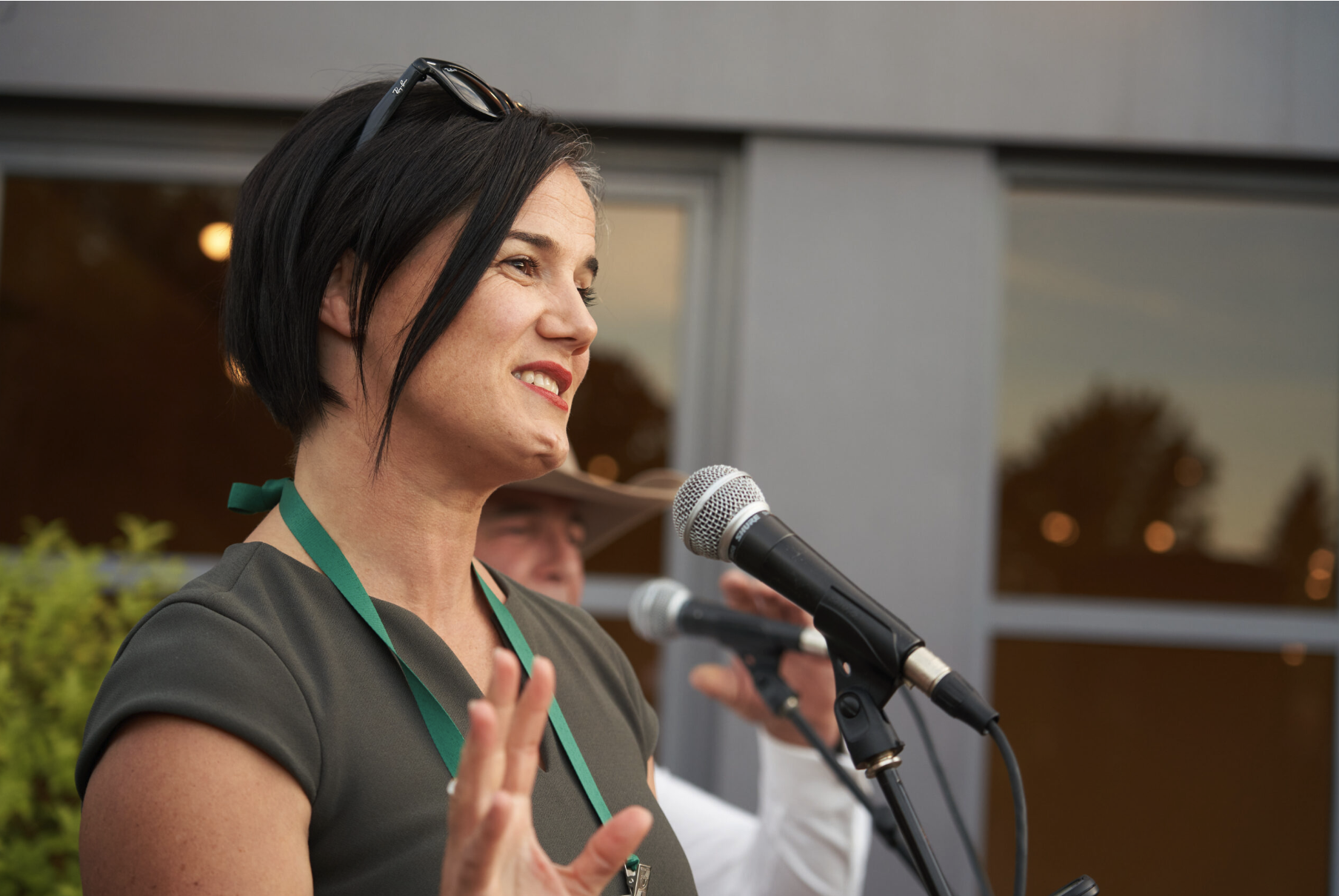AgriFutures Industrial Hemp Industry Profile
Story from the AgriFutures Australia website
Tasmanian Andi Lucas discovered industrial hemp after a year of personal tragedy prompted her to search for a career that would allow her to make a difference. She is now heavily involved in the Australian industrial hemp industry, which has been tipped to reach $10 million in annual gross value production by 2026.
She is the owner and operator of X-Hemp – a business converting industrial hemp crop waste into saleable products – and is currently President of the Tasmanian Hemp Association, which has been contracted by AgriFutures Australia and the Tasmanian Government to run industrial hemp variety trials in Tasmania.
How did you get to where you are today?
I spent a decade living and working in Colorado from 2009 to 2019, where I recognised the huge benefits that industrial hemp could potentially have back home in Tasmania. So, when I arrived back in Australia permanently in 2019, I started working for the Tasmanian Hemp Association as Executive Officer. In late 2020 I opened my hemp fibre processing mill, X-Hemp. To my knowledge, we’re the only 100% female owned and staffed mill in the world, which I’m very proud of. Then in September this year, I was elected as President of the Tasmanian Hemp Association.
Why was the hemp industry so appealing to you?
In 2013 I had some major life events that forced me to re-evaluate things. I lost my Tasmanian house to bushfire, and then nine months later I lost my flat in Colorado to flooding. It really focused my attention on what I wanted to do with my life, especially my professional life, and I decided I wanted to work in something to do with climate change. I wasn’t sure what it would be, but from 2014 onwards I started looking intro natural building materials and that’s how I came across the hemp industry. I spent a couple of years reading articles and keeping an eye on what was going on with hemp globally and then in 2019 I went to the Hemp Summit in Nepal and started writing for Hemp Today magazine. I fully immersed myself in the industry to quickly expand my knowledge and then came home to Tasmania in 2019 to start working in the local scene.
I came into the industry interested in hemp as a building material, but I’ve since met professionals working in the food industry growing hemp seeds and producing hemp milks and protein powders, and then met farmers, agronomists, geneticists and more, who are all super passionate about the industry.
Was it hard to get involved in the local industry?
No! If people are wanting to get involved in the industrial hemp industry, the very first thing that I’d recommend is that they join their local industry group.
What do you enjoy about the industry?
I’ve realised that working in the hemp industry, it will be impossible to get bored because of the enormous breadth of opportunities. You could work in food, fibre, extracts, fodder, carbon – everything from farm ecology through to agriculture, and everything in between. I love going to conferences and learning things I’ve literally never heard of before. For example, they’ve developed prototypes of batteries using hemp instead of lithium, which could be a game-changer on a global scale. There is also exciting prototyping being done using hemp as a substitute for certain steel construction materials. It’s a diverse and nuanced industry, and because it is so new, it is really exciting because we’re at the forefront of everything.
Tell us more about hemp as a building material.
Basically, you can take a hemp stalk, cut it up with some lime and other ingredients and it forms a wall material called hempcrete, which is a miracle product. It’s an amazing insulative, non-combustible, mould resistant, hypoallergenic material that termites won’t eat, looks amazing, smells amazing and sucks carbon out of the atmosphere. It’s one of the most environmentally friendly ways you can construct a building. It’s a perfect product for people looking to build low-energy housing, and communities wanting houses that can potentially be demolished and composted in the case of natural disasters.
What’s your vision for the industry?
We need to match our trading partners like Canada who have legalised the whole plant. Canada has a billion-dollar hemp industry, so I’m focused on community education flowing through to legislative change in Australia. From a community education perspective, we need to move away from the unscientific stigma that the word ‘cannabis’ carries. Industrial hemp is low THC and has no drug value whatsoever; it’s a multipurpose crop that humans have been using for over 10,000 years. Once we legalise the whole plant we will remove all these blocks on industry development and entrepreneurship so we can unlock the environmental and economic benefits.
Read the full story on AgriFutures Australia website


